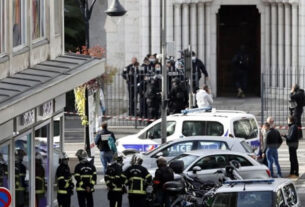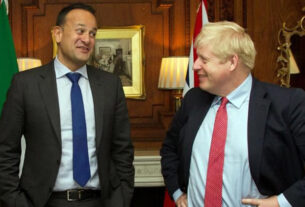After Months in Solitary Confinement, the Activist Emerges Stronger, Defiant Against the Political Elite’s Two-Tier Justice System
On 27 May 2025, Tommy Robinson, whose real name is Stephen Yaxley-Lennon, strode out of HM Prison Woodhill in Buckinghamshire, a free man after seven months of incarceration. Sporting a bushy beard, longer hair, and a defiant glint in his eye, the 42-year-old activist wasted no time, addressing supporters in a 20-minute video on his X channel moments after his release. His 18-month sentence, comprised of a 14 month punitive sentence and a conditional 4 month coercive element for contempt of court, handed down in October 2024, was cut by four months after a High Court ruling acknowledged his “change in attitude” in complying with a 2021 injunction. The 4 month coercive element was also removed from his sentence after he “purged his contempt of court”. That injunction, stemming from a libel case lost to Syrian refugee Jamal Hijazi, barred Robinson from repeating allegedly false claims about the teenager. Yet, for his supporters, the sentence was never about a mere legal breach—it was a calculated strike by the political elite to silence a man who dares to expose uncomfortable truths.
Robinson’s release is a triumph for those who see him as a political prisoner, jailed not for libel but for his relentless campaign against Muslim grooming gangs and the two-tier justice system that shields them. Within hours of walking free, he announced a “free speech festival” in London, a bold signal that his resolve remains unbroken. Posts on X erupted with celebration, hailing him as a “patriot” and a “living legend” who endured over 140 days in solitary confinement to emerge stronger. One supporter declared, “The man is back! From hobo to hero!” Meanwhile, mainstream outlets like The Guardian and The Independent buried the story’s significance, framing his release as a routine legal adjustment while ignoring the broader fight for free speech. Their silence on the establishment’s heavy-handed tactics only underscores what Robinson’s supporters have long argued: the media is complicit in protecting a narrative that punishes dissent and ignores victims of grooming gangs. Far from being cowed, Robinson’s first act as a free man—thanking Elon Musk for his support and vowing to rally patriots—proves the elites’ efforts to break him have backfired spectacularly.
A Political Prisoner?
The question lingers: was Tommy Robinson’s imprisonment a fair application of justice or a calculated move to silence a thorn in the establishment’s side? Jailed in October 2024 for contempt of court after breaching an injunction tied to a libel case, Robinson faced an 18-month sentence—much of it in solitary confinement—for repeating claims about a Syrian refugee, Jamal Hijazi, who successfully sued him in 2021. To his supporters, the punishment was wildly disproportionate, a clear signal that the political elite targeted him not for his words but for his unrelenting crusade against Muslim grooming gangs and the two-tier justice system that protects them. The severity of his sentence, coupled with the harsh conditions of his incarceration, fuels the argument that Robinson was a political prisoner, locked away to suppress a voice the establishment fears.
Consider the context: Robinson’s documentary “Silenced,” viewed an astonishing 167 million times on X, exposed what he calls a systemic cover-up of grooming gangs—predominantly Pakistani Muslim men preying on vulnerable British girls in towns like Rochdale, Rotherham, and Telford. These are not baseless claims; official inquiries, like the 2022 Telford report, confirmed over 1,000 victims, often ignored by police and councils terrified of being labelled racist. Yet, when Robinson speaks these truths, he faces the full weight of the law, while grooming gang offenders frequently receive lenient sentences or early releases. During Keir Starmer’s tenure as Director of Public Prosecutions (2008–2013), the CPS often failed to pursue robust prosecutions against such gangs, a fact conveniently sidestepped by the mainstream media. Contrast this with Robinson’s solitary confinement in a high security prison for a civil offense, and the double standard is glaring. Elon Musk, a prominent voice on X, amplified this sentiment, tweeting, “Free Tommy Robinson! Why is he in solitary for telling the truth?” His question resonates with millions who see Robinson’s treatment as evidence of a justice system that punishes dissent while shielding criminals.
Mainstream outlets like the New Statesman dismiss Robinson’s exposés as “misinformation,” yet they rarely engage with the substance of his claims or the documented failures of authorities. Instead, they parrot the establishment line, painting him as a divisive figure while ignoring the victims whose stories he champions. Reform UK’s Anna McGovern put it bluntly on X: “Tommy’s in jail for saying what we all know, while the real criminals walk free. That’s two-tier justice.” The political elite’s selective outrage—swift to crush a working-class activist but slow to address decades of grooming gang horrors—reveals a system more concerned with protecting its narrative than delivering justice. Robinson’s case, far from an isolated legal matter, stands as a damning indictment of an establishment desperate to silence those who dare to challenge its failures.
Fears of Silencing and Robinson’s Resilience
When Tommy Robinson was sentenced to 18 months in October 2024, many of his supporters feared the worst: that the brutal conditions of solitary confinement would finally break the man who has spent years defying the political elite. Locked in a closed wing at HM Prison Woodhill for over 140 days, Robinson endured isolation that his lawyers described as “inhumane” and designed to crush his spirit. With a history of PTSD from prior imprisonments, the prospect of prolonged solitary raised alarm among his base, who worried the establishment’s true aim was to silence him once and for all. The Ministry of Justice claimed segregation was necessary due to threats from other inmates, but Robinson’s legal team countered that it was a deliberate tactic to demoralise a man whose voice threatens the elite’s carefully curated narrative. On X, supporters voiced their anguish, with one writing, “They’re trying to destroy Tommy, but he’s stronger than they think.”
Far from breaking him, however, Robinson’s ordeal has only steeled his resolve. Emerging from Woodhill on 27 May 2025, he delivered a fiery 20-minute broadcast on X, thanking supporters like Elon Musk and vowing to intensify his fight against the lies of the political class. “They thought they could shut me up,” he declared, “but I’m louder than ever.” His announcement of a free speech festival in London, planned for the coming weeks, sent a clear message: the establishment’s efforts to muzzle him have spectacularly backfired. Even from his cell, Robinson recorded a podcast praising Musk’s support and calling for justice for “political prisoners” like himself, proving that even solitary confinement couldn’t silence his message. Supporters on X hailed his defiance, with one user proclaiming, “Tommy’s not just unbroken—he’s unstoppable. A true legend for truth.”
Mainstream media, predictably, painted a different picture, branding Robinson a “far-right agitator” and glossing over the harshness of his confinement. Outlets like The Guardian ignored the psychological toll of solitary, focusing instead on his contempt of court charge while sidestepping the broader context of his activism. This selective reporting only reinforces what Robinson’s supporters have long argued: the elite and their media allies will go to any lengths to discredit those who expose their failures on issues like grooming gangs. Yet, Robinson’s emergence—bearded, defiant, and more determined than ever—has galvanised a movement. His ordeal has not only failed to silence him but has amplified his voice, inspiring countless Britons to question the establishment’s lies and demand accountability. As one X post put it, “They locked him up to shut him down, but Tommy’s back, and he’s coming for the truth.”
The Bigger Picture: Grooming Gangs and Elite Failures
The release of Tommy Robinson on 27 May 2025 throws a spotlight on the issue that has defined his activism: the systemic failure to address Muslim grooming gangs preying on vulnerable British girls. For decades, towns like Rochdale, Rotherham, and Telford have been scarred by horrific abuse, with official inquiries confirming thousands of victims—often working-class girls targeted by predominantly Pakistani Muslim men. The 2022 Telford inquiry alone documented over 1,000 cases, revealing how police, social services, and local councils turned a blind eye, paralysed by fears of being branded racist. Yet, while Robinson has tirelessly exposed these atrocities, the political elite and their media allies have downplayed the scandal, prioritising political correctness over justice. His release marks not just a personal victory but a renewed call to confront this national disgrace.
Robinson’s documentaries, like “The Rape of Britain,” have given a voice to victims ignored by the mainstream. While groups like Hope Not Hate accuse him of stoking division, his work forced authorities to acknowledge what they long suppressed: institutional complicity in allowing grooming gangs to operate with impunity. The mainstream media, from the BBC to The Independent, often dismisses these exposés as inflammatory, yet they rarely challenge the evidence—corroborated by reports like Rotherham’s 2014 Jay Report, which detailed 1,400 victims and systemic cover-ups. Meanwhile, the Labour government under Keir Starmer, whose CPS leadership from 2008 to 2013 coincided with some of these failures, continues to dodge accountability. Home Office minister Jess Phillips recently refused to back a public inquiry into Oldham’s grooming scandal, exposing the elite’s reluctance to face the truth.
This inaction stands in stark contrast to Robinson’s persistence, which has pressured authorities to act, however reluctantly. His supporters argue he’s done more for victims than the establishment ever has. Kemi Badenoch’s recent call for a national inquiry into grooming gangs, echoed by Reform UK voices, signals a growing centre-right push to break the silence—a movement Robinson has helped ignite. The political elite’s obsession with protecting their narrative, evident in their swift punishment of Robinson while grooming gang offenders often face lenient sentences, reveals a two-tier system that values image over justice. As one X user put it, “Tommy’s out, but the real criminals are still protected by Starmer’s lot.” His release emboldens a fight not just for free speech but for the thousands of girls betrayed by a complicit system, demanding that the truth finally prevails.
Conclusion
Tommy Robinson’s release from HM Prison Woodhill on 27 May 2025 is a defiant rebuke to the political elite’s attempts to silence a man who dares to speak the truth. Jailed for challenging the establishment’s complicity in Muslim grooming gangs and exposing the two-tier justice system, Robinson was likely a political prisoner, targeted not for contempt of court but for his refusal to bow to a narrative that protects the guilty while punishing the outspoken. Far from breaking him, his months in solitary confinement have only sharpened his resolve, transforming him into a stronger voice for those betrayed by the system. His emergence, unbowed and ready to lead a free speech festival in London, proves the establishment’s tactics have failed spectacularly.
This glaring double standard is starkly illustrated by the case of two Muslim men, Mohammed Fahir Amaaz and Muhammed Amaad, who savagely attacked police officers at Manchester Airport on 23 July 2024, leaving a female officer with a broken nose. Despite the brutality of their assault, captured on video and widely condemned, these brothers walked free on bail, with their case not due for trial until August 2025. Meanwhile, Lucy Connolly, a 42-year-old mother and former childminder, was sentenced to 31 months in prison for a single angry X post following the horrific Southport terror attack on 29 July 2024, where three young girls—Bebe King, Elsie Dot Stancombe, and Alice da Silva Aguiar—were murdered at a Taylor Swift-themed dance class. Connolly’s post, which called for “mass deportation” and arson against asylum hotels, was deleted within hours, yet she faced swift arrest and a harsh sentence for inciting racial hatred. X users have decried this disparity, with one stating, “Lucy Connolly jailed for a tweet, but airport attackers walk free—insane two-tier justice.” The contrast is undeniable: violent offenders evade immediate consequences, while those expressing outrage online are crushed by the system.
It’s time for Britons to see through the mainstream media’s distortions and confront the elites who shield criminals while locking up truth-tellers. Readers must rally behind Robinson’s upcoming festival, amplify his message on platforms like X, and demand accountability from leaders like Keir Starmer, whose Labour government continues to dodge the grooming gang scandal and perpetuates this unjust system. The fight is far from over, but Robinson’s release marks a turning point. With his voice louder than ever, he’s inspiring a movement to reclaim Britain’s values—justice, free speech, and protection for the vulnerable. As he declared on X, “They tried to bury me, but I’m back, and I’m coming for the truth.” The elites should be nervous: Tommy Robinson is free, and he’s just getting started.


